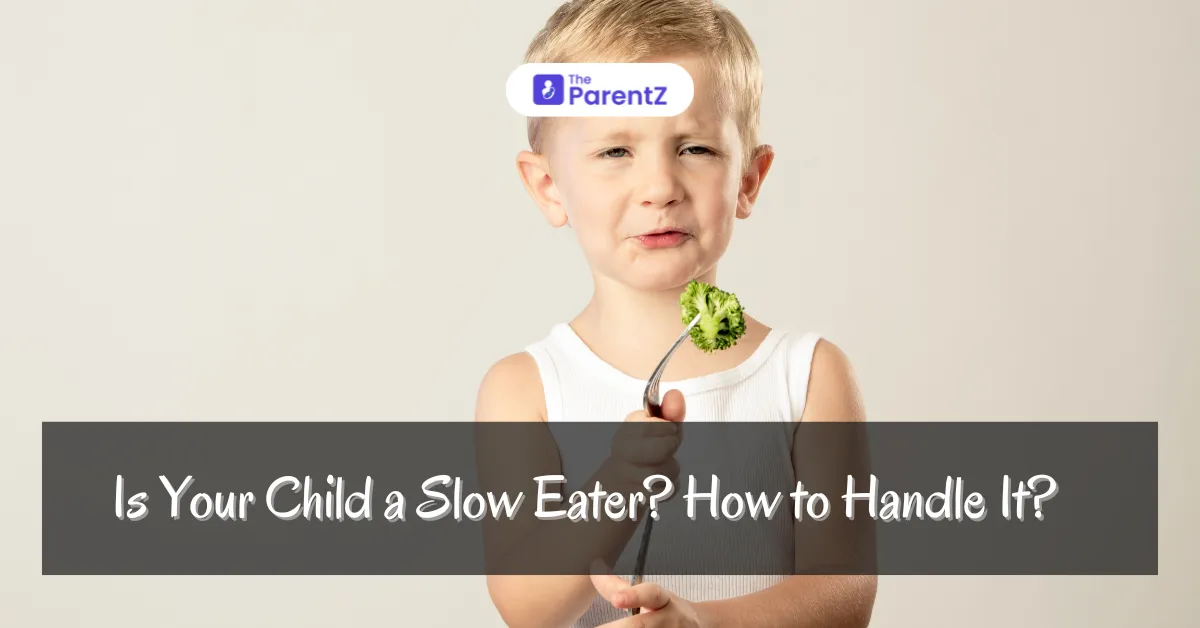As a parent, you may have noticed that your child takes their time at the dinner table, often lingering over their food long after everyone else has finished. If your child is a slow eater, it can sometimes lead to frustration during mealtimes, especially if you’re trying to keep to a schedule. However, understanding the reasons behind slow eating and learning how to handle it can transform mealtime into a more enjoyable experience for everyone involved.
Identifying Slow Eaters
First, let’s explore how to identify if your child is indeed a slow eater. While every child has their own pace when it comes to eating, there are specific signs that can help you determine if your child is taking longer than usual:
- Time Spent Eating: If your child consistently takes more than 30 minutes to finish a meal, they may be classified as a slow eater. This is particularly noticeable during family dinners or when dining out.
- Distraction During Meals: Many slow eaters may become easily distracted by their surroundings. They might engage in conversations, play with their food, or even get lost in thoughts while eating, which can significantly prolong mealtimes.
- Tantrums and Frustration: Sometimes, slow eaters may throw tantrums or display frustration when pressured to eat faster or finish their meals. If your child reacts negatively when you encourage them to speed up, it could be a sign that they are not just slow eaters but may also be experiencing anxiety around mealtime.
- Preference for Certain Foods: Slow eaters often have strong preferences for specific foods and may take longer to enjoy those they like while resisting those they don’t. This can lead to prolonged meals as they savor what they love and refuse what they dislike.
Understanding the Reasons Behind Slow Eating
Before jumping to conclusions about your child's eating habits, it's essential to understand the factors that may contribute to their slow eating:
- Sensory Sensitivities: Some kids are more sensitive to textures and flavors, causing them to take longer as they process each bite.
- Anxiety: If mealtimes are stressful—perhaps due to pressure from parents or siblings—children may slow down as a coping mechanism.
- Mindfulness: Some children simply prefer to savor their food rather than rush through meals. This can be a positive trait, promoting mindfulness and enjoyment of food.
How to Handle Slow Eating?
If you’ve identified your child as a slow eater, here are some strategies that can help make mealtime smoother and more enjoyable:
- Set a Routine: A consistent mealtime routine can help children understand what is expected during meals. Try setting specific times for breakfast, lunch, and dinner. A structured routine provides predictability and can help reduce anxiety around eating.
- Create a Calm Environment: Minimize meal distractions by creating a calm atmosphere. Turn off the television, put away electronic devices, and encourage family members to engage in pleasant conversation. A peaceful environment allows children to focus on their food rather than getting sidetracked.
- Encourage Mindful Eating: While it’s important not to rush your child, you can encourage them to practice mindful eating by discussing the flavors and textures of their food as they eat. Ask questions like, “What do you think about the taste of this broccoli?” This not only helps them engage with their meal but also promotes appreciation for different foods.
- Avoid Pressure: Do not press your child to eat faster or finish their meal quickly. Instead of focusing on how long it takes them to eat, celebrate small victories—like trying new foods or finishing a portion of their meal—without emphasizing speed.
- Set Time Limits (Gently): If mealtimes drag on excessively, consider setting gentle time limits for each meal (e.g., 30-40 minutes). Communicate this in advance so your child knows what to expect.
- Make Meals Fun: Incorporate fun elements into meals! Use colorful plates, create fun shapes with food, or involve your child in meal preparation. When children are excited about what they’re eating, they may naturally pick up the pace.
- Consult Professionals if Needed: If you find that your child's slow eating leads to significant issues—such as nutritional deficiencies or persistent tantrums—it might be helpful to consult with a pediatrician or feeding specialist for tailored advice.
Conclusion
Every child is unique. Slow eating is a phase, not a permanent condition. With patience, understanding, and the right strategies, your child can develop healthier eating habits.
Remember:
- Progress isn't linear.
- Small steps matter.
- Your child is learning and growing.
- Your support makes the biggest difference.
Parenting a slow eater requires superhuman patience. Some days will feel challenging, and that's okay. You're not just feeding a child — you're nurturing their relationship with food, building trust, and supporting their individual development.
Take a deep breath. You've got this.






